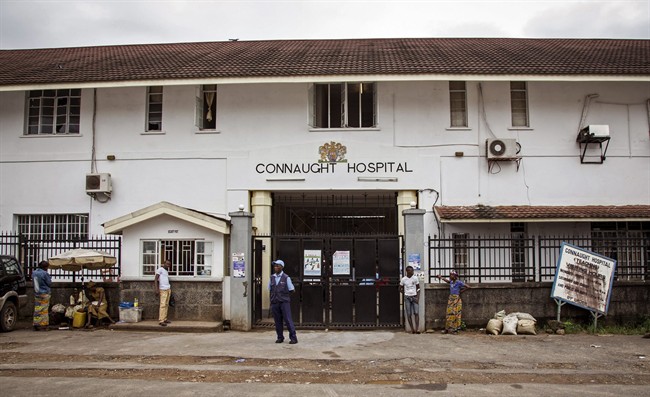As countries across the globe continue to battle the novel coronavirus pandemic, the diplomatic spat between the U.S. and Canada over the export of 3M respirator masks has been just one example of how human (and political) instinct comes in to play during a crisis.

It’s the understandable desire to look after your own people first.
The European Union and Turkey have also moved to limit the export of some medical equipment.
The ‘haves’ exerting their power over the ‘have-nots’ has not only been a trend between nations. The same could be seen at the household level, with people all over the world panic-buying and hoarding items like toilet paper, at the potential expense of more vulnerable citizens.
From the very start of the crisis, the World Health Organization (WHO) has stressed its desire that nations work together to beat COVID-19.
“This problem can only be solved with international cooperation and international solidarity,” said WHO Director-General Tedros Adhanom Ghebreyesus.
“When health workers are at risk, we’re all at risk.”
“Health workers in low- and middle-income countries deserve the same protection as those in the wealthiest countries.”
The issue of protecting everyone equally goes beyond the fundamental issue of equality.
It’s also about understanding the very nature of a virus in an inter-connected world.
In short, if the virus is not tackled properly everywhere, it will come back again, everywhere.
“One of the critical issues that we’re working on globally is to have people understand this is truly a global problem,” said Dr. Seth Berkley, CEO of vaccination charity Gavi the Vaccine Alliance.
Berkley told Global News he worries that if richer countries ignore the developing world, then all other efforts to beat the virus will be in vain.

Get weekly health news
He also says the pandemic threatens to kill more people indirectly, by leaving them vulnerable to other diseases.
Gavi has helped vaccinate hundreds of millions of children from diseases like cholera, measles and Ebola.
“We also have 21 countries who are beginning to become short of vaccine supply,” said Berkley.
“The normal supply has been disrupted, because of airlines stopping flights to those countries.”
The front lines

In many developing countries medical equipment is in short supply at the best of times.
Dr. Mamadu Baldeh works at the Chest Clinic and Infectious Disease Unit, at Connaught Hospital, Freetown, Sierra Leone.
He has lobbied lawmakers for better equipment in his role as president of the country’s Junior Doctors Association.
“We can not fight a battle when we do not have ammo,” said Baldeh.
“We need to protect ourselves. We have a very limited capacity in terms of doctors. We can not afford to lose anyone (to the virus) at this point in time.”
The west African nation is still emerging from the effects of the 2014-2016 Ebola epidemic.
Baldeh told Global News there are only a handful of ventilators in the country, and other basic equipment is also hard to find.
Baldeh says the trauma of Ebola means people in Sierra Leone are taking the outbreak seriously.

“We came out recently, so the memories are still fresh,” he said.
“So it put us in a position where communication is easy. When you say ‘outbreaks’, people already have their minds prepared.”
However most countries have not experienced an epidemic like this in recent memory, and education can be more difficult.
In the developing world, public health systems are often weak, large families live in close quarters, and clean water can be difficult to come by.
There is no financial support for millions of workers who are currently unable to work, particularly those in the informal, cash economy.
The United Nations says more than half the planet has no access to income support.
One man in New Dehli recently told the news agency Reuters “I’d rather die from disease than hunger.”
Seven words that sum up the dreadful dilemma currently facing so many people.
“This is a global pandemic. We’ll need a global response and we’re all going to have to work together to do that,” said Berkley.

Questions about COVID-19? Here are some things you need to know:
Health officials caution against all international travel. Returning travellers are legally obligated to self-isolate for 14 days, beginning March 26, in case they develop symptoms and to prevent spreading the virus to others. Some provinces and territories have also implemented additional recommendations or enforcement measures to ensure those returning to the area self-isolate.
Symptoms can include fever, cough and difficulty breathing — very similar to a cold or flu. Some people can develop a more severe illness. People most at risk of this include older adults and people with severe chronic medical conditions like heart, lung or kidney disease. If you develop symptoms, contact public health authorities.
To prevent the virus from spreading, experts recommend frequent handwashing and coughing into your sleeve. They also recommend minimizing contact with others, staying home as much as possible and maintaining a distance of two metres from other people if you go out.
For full COVID-19 coverage from Global News, click here.













Comments
Want to discuss? Please read our Commenting Policy first.